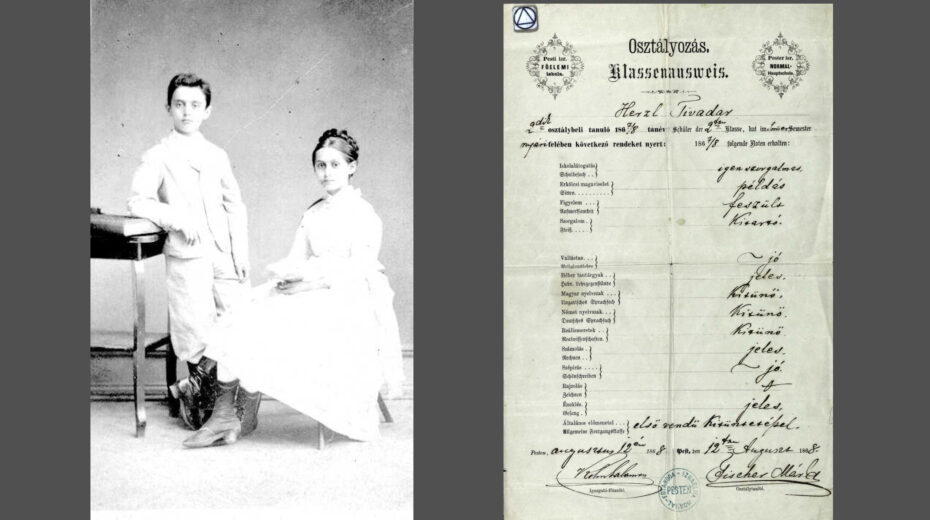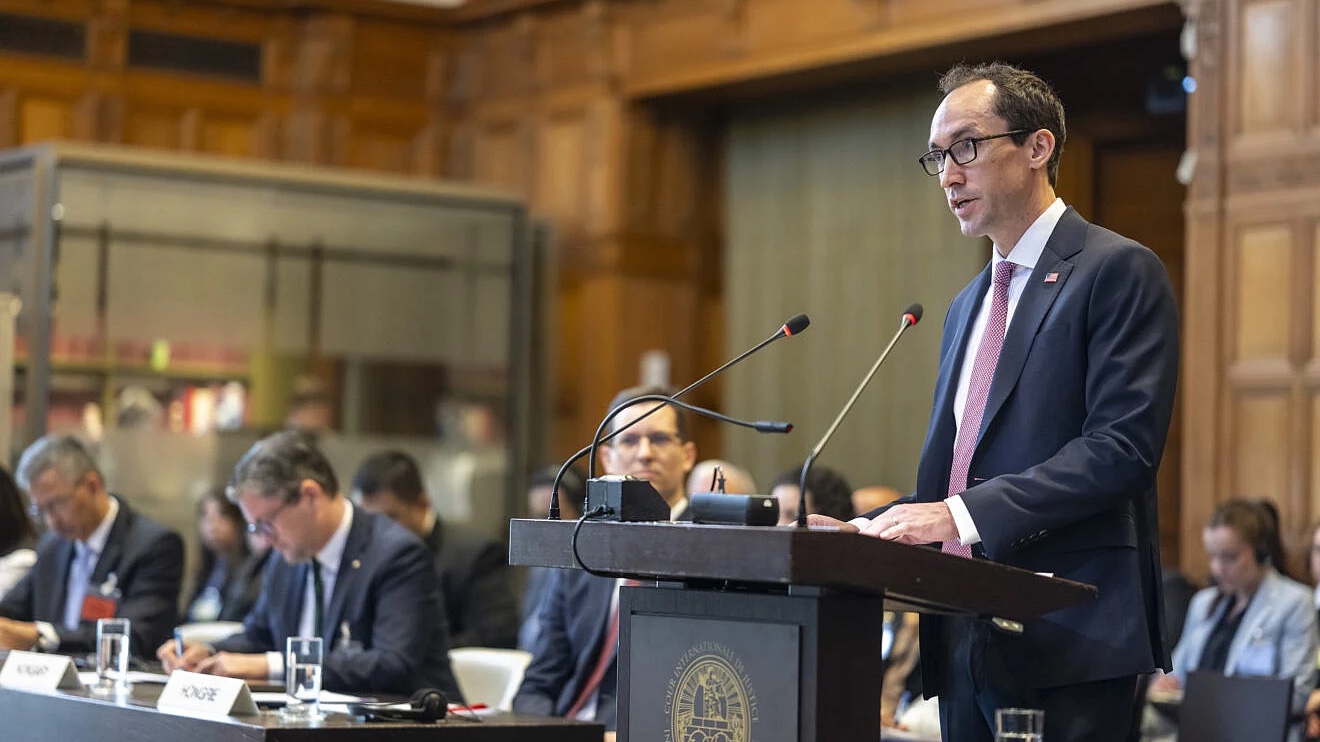On the occasion of the 120th anniversary of the death of Benjamin Ze’ev Herzl, which will be celebrated on July 26, the Zionist Archives of the World Zionist Organization have made exclusive documents from Herzl’s childhood available for the first time that have not been published before.

This is Herzl’s primary school report card and a photo taken with his sister. The report card is from 1868, when Herzl was in the third grade. At that time, he attended the Jewish school “Pester Israelitische Normal-Hauptschule”, where they learned in two languages - Hungarian and German. So, the report card was written in these two languages. The report card contains a note on general matters relating to student behavior and various subjects studied. Herzl is described in the report card as a student who pays attention in his studies. He has good manners and etiquette, is very careful about regular school attendance, and shows diligence in completing his assignments.
Herzl’s grades are listed in the report card, and it appears that he received an “excellent” grade in the subjects of religion, Hungarian, German, science, and mathematics, while he received only a “good” grade in the Hebrew subjects and in the use of handwriting.

Another photo is a picture of Herzl together with his sister Paulina, taken around 1870. At that time, Herzl was 10 years old. These are materials that tell us more about Herzl’s personal life and childhood. It is clear that from a young age Herzl demonstrated his intellect and dedication to a high degree, and as the years went by he became the powerful figure who greatly influenced the Jewish people.
Dror Morag, member of the board of the World Zionist Organization:
“The new materials revealed by the Zionist Archives allow us to commemorate and reassess Benjamin Ze’ev Herzl, who in an impressive way consolidated the foundations and had a great influence on the history of the Jewish people. It is fascinating to read and understand how religious studies and core studies showed his commitment. Our past strengthens and enables us here for the future.”
See also: Secular Redeemer: Commemorating Herzl’s Death














